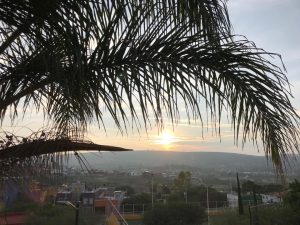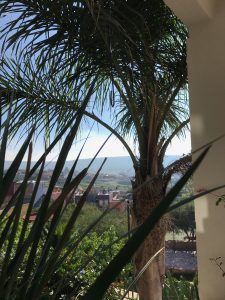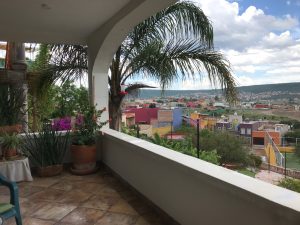There’s talk now about the grand palm tree next door being chopped down. I’m heartsick about this. It’s not my tree, and it’s not on my property. It’s only adjacent to my terrace here in San Miguel. Nevertheless, I feel the need to step in. Call me a tree-hugger. Call me crazy. But this palm tree is speaking to me; it’s crying Help! I want to give it a voice before it’s too late.
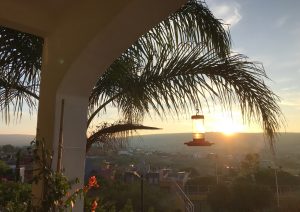
I learned from an African friend in Gabon when I lived in that densely forested country in the late ‘90s that trees cry when they’re being killed, and I believed him. My photographer friend Youssef had worked for a time for a French-owned logging company there and saw first-hand what happened in those forests. I told the fuller story in my memoir of that time, HOW TO COOK A CROCODILE, but in brief:
Sometimes in the evening in my study, I wrote, Youssef would share with me in tragic, lyrical terms how the earth and trees suffered at the hands of these foreign-owned logging companies.
As Youssef explained it, even carefully selected trees, which he described as several stories tall, oil-drum thick, and centuries old, take down many, many more trees with them. To get the big Okoume trees — which were highly prized for plywood and in world demand, especially in Asia — first a path, then a clearing is cut, killing scores of trees.
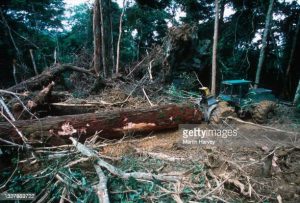
Then, when the sought-after tree is chain-sawed and falls, screaming like a human, Youssef said, to the ground, it wounds and ultimately kills all the trees it touches. The prize tree is then sliced into truck-length portions, hauled out of the forest in chains, loaded onto the waiting trucks, and whisked off to the greedy, thoughtless world.
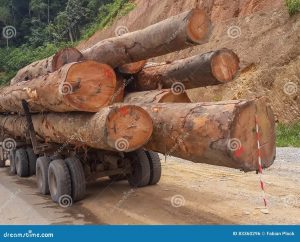
“These French businessmen don’t see the African workers who lose fingers and arms to the sawing machinery,” Youssef told me earnestly. “They don’t hear the trees weep.”
Maybe before then in my life, when I was too busy working to support myself in fast-paced NYC, before I joined the Peace Corps at fifty and served in Gabon, where I found I had time to think about broader world/earth issues, I was guilty of taking trees for granted. (For sure, I’d never given a thought to the origin of plywood.)
But since then, and thanks to all that I learned from Youssef, I’ve been particularly sensitive to the fate of trees. And because I’m especially in love with palm trees, I’m upset now about this one so close to me being torn down in the seemingly reckless, never-ending, maddening demolition/construction work going on next door.
“You know permits are required here to cut down trees, don’t you?” my friend Victoria told me when she braved the demolition noise to come to my apartment for tea on Tuesday. I didn’t know. She told me of people she knew who’d ignored this law at their peril. Their penalty was to buy and plant hundreds of new trees for the city.
My dueño (landlord/owner) is now on the case. He’s promised to have a talk with the jefe (boss) of the demolition crew next door. I’m hopeful that Mexican-man-to-Mexican-man they’ll be able to diplomatically reach some clarification and, I hope, a positive solution.
Who was it – D. H. Lawrence, perhaps? – who said that all we humans need for happiness is love and a crusade? Well, I love trees – above all, palm trees – and keeping this beloved one alive has become my new crusade.
Here are more views of “my” beautiful palm tree from my terrace:

